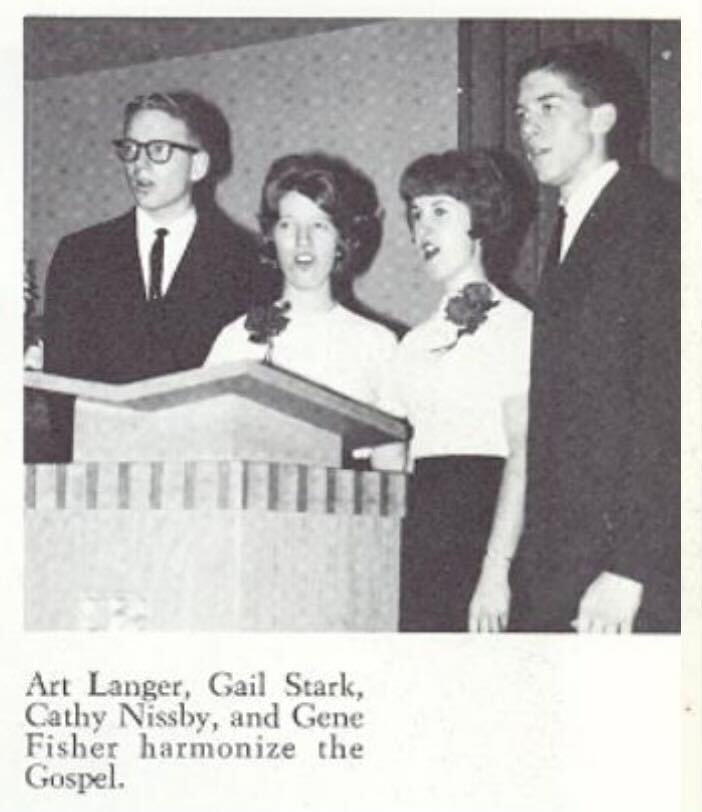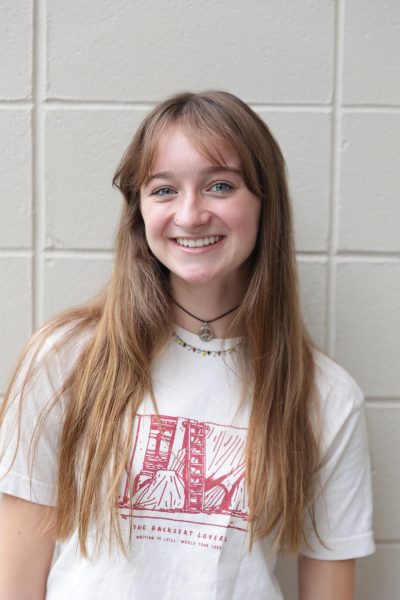
Imagine stepping back in time to Seattle Pacific University decades before today. The atmosphere is filled with a blend of students who are passionate about their faith and academics. Picture living in Marston Hall, a girls only dorm hall, where they check the lengths of a girl’s skirt. With one step back in time, that thought was an alumni’s piece of life from the graduating class of 1964.
Meet Gail Stark, whose devotion and passion led her to a humanitarian-driven career in missions and teaching. During her time at Seattle Pacific College, now known as Seattle Pacific University, Stark found community within the band and choir clubs.
“I was involved in the Gospel Team,” Stark said. “We would go around to local churches, partly to promote the school, but also as an activity,” Today, the 1964 Gospel Team may have looked like Group, a club where students can gather to worship together and connect over their faith.
In 1964, SPC prided itself on faith, similar to today, yet in a very traditional and stereotypical type. Each club was very proper and had formal attire as seen in the yearbook. Students had an abundance of networks and clubs that allowed them to incorporate faith into their daily lives.
1964 brought with it a slew of culture defining moments including John F. Kennedy’s assisination, which was a shock to many students on campus. Stark remembers exactly where she was when she found out about his assassination.
“Lots of people asked ‘where were you when JFK was assassinated?’ and I would say I was in the Student Union Building,” Stark said.
Classes were canceled immediately for the remainder of the week because no one expected this event. The school kept its annual play that had been scheduled for that following weekend in memoriam of his life.
On a local scale, the division of gender created several invisible boundaries between men and women at SPC.
“Girls would have to be checked for skirt lengths before leaving the dorm, and I would always get in trouble with that policy,” Stark said.
This kind of policy may have been acceptable due to society’s expectations of gender roles in 1964, but looking back now, it is possible to see how influential these expectations could be for new college students in this time period. They grew up knowing how to behave properly, what clothing to wear, and how to interact with the opposite gender. Going to college is their first chance for independence and these societal expectations become moldable for the first time. Stark’s perspective gives us a glimpse into campus life and how societal norms influenced the experience of being a college student.
With this portal back in time, it is apparent how our society and school has grown up alongside students like Gail Stark. 60 years after her graduation, Stark’s return to campus brought back her fond memories that included her religion, political knowledge, and social life on campus. She has since been involved in several humanitarian missions across the globe to give back to children in need of education and homes. As of this year, Stark has been writing a multitude of devotionals that will be turned into a book to help other people navigate their religious journeys. When asked about advice for current college students, Stark remarked that “there are so many experiences that I have grown from,” and “there’s no end to options and possibilities, even much later in life.”















































































